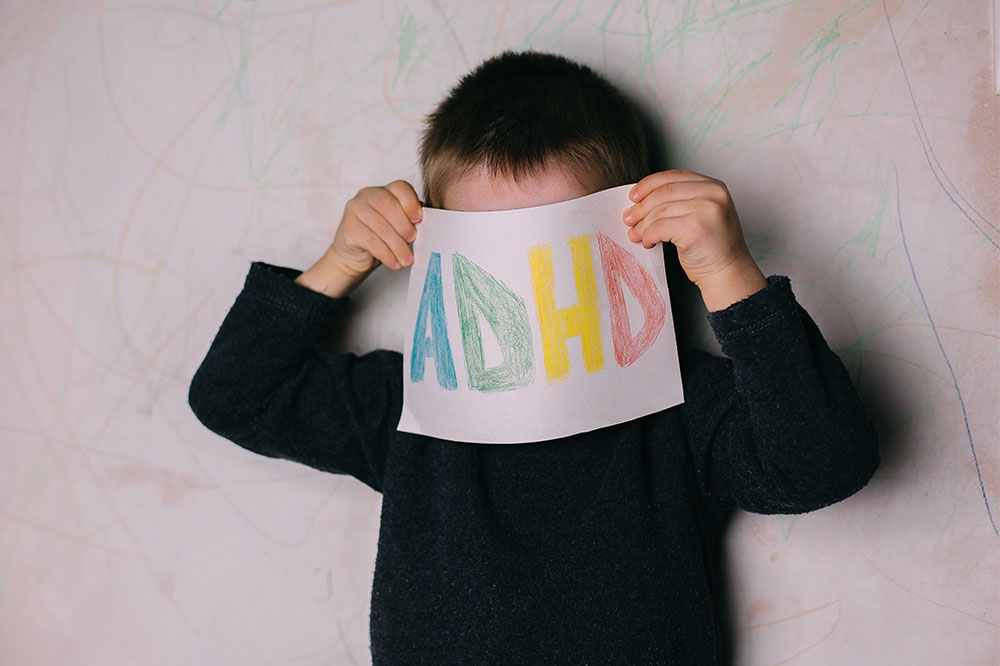
ADHD – Its signs, causes, and management
Neurodevelopmental disorders like attention deficit hyperactivity disorder (ADHD) are most commonly observed in children. The condition is typically diagnosed during childhood and often lasts well into adulthood. The usual signs associated with this condition include inattention, hyperactivity, and impulsive behaviors. While the disorder cannot be cured, it can be managed if diagnosed early. Here, we elaborate more about attention deficit hyperactivity disorder and its signs, causes, treatment options, and nutrition.
Signs
There are different signs and symptoms for a condition such as ADHD because it can manifest differently in every individual. Issues with focus and behavior are typical for children. But with conditions such as ADHD, these behaviors and concentration issues do not go away with time. Such problems have the potential to become severe, affecting life in school or at home. Some of the common signs that you see in children with ADHD are
- Trouble with focus
- Talking too much
- Constantly daydreaming
- Making careless mistakes
- Not getting along with peers
- Difficulty resisting temptation
- Constantly fidgeting and squirming
The primary symptoms of ADHA include inattention and impulsive behavior. These symptoms are often seen before the age of 12. These symptoms may also be seen as early as three in some rare cases. It is important to note that the severity of ADHD symptoms can change from one child to the other. If left untreated, these symptoms can continue well until adulthood.
The symptoms of ADHD can diminish with age. But, they do tend to interfere with the individual’s day-to-day functioning. In adults, the significant symptoms include trouble paying attention, impulsiveness, and restlessness. In many cases, adults are unaware that they have this condition and can even make everyday tasks challenging. They may need help prioritizing their work, and this could lead to issues with meeting deadlines. There could also be impatience and difficulty controlling instincts. Here are a few common ADHD signs seen in adults:
- Impulsive behavior
- Poor planning
- Low tolerance levels
- Short temper
- Issues with multitasking
- Lack of time management
- Restlessness or too much activity
- Difficult tackling stress
- Mood swings
- Lack of time management skills
Causes
Experts have been conducting experiments and studies to understand this disorder with the hopes of finding methods of management and treatment. They have also been studying risk factors in certain individuals and how to reduce their development chances. While the exact causes of ADHD are unknown, according to current research, experts have found certain factors that could lead to the development of this ADHD in children. One of the critical risk factors for ADHD is genetics. Studies have found that such a condition can run in families, and specific genes may play a role. Aside from genetics, environmental factors such as lead exposure and troubles with the development of the central nervous system can also lead to a higher risk. An unhealthy lifestyle during pregnancy, premature delivery of the child, and low birth weight have also been linked with this condition in children.
Treatment options
Treating and managing the symptoms of ADHD can be done in several different. Knowing that there is no cure for this condition is essential. But available treatment options focus on providing a better way to manage ADHD and ensure that it does not interfere with the individual’s day-to-day functioning. Many doctors prescribe a combination of options, including oral treatments, education, training of skills, and even psychological counseling.
Oral treatments
Doctors may prescribe treatments such as stimulants to those who have ADHD. These treatments help boost and balance the levels of certain chemicals in the brain. These chemicals are neurotransmitters and are responsible for managing mood and function. Doctors may also prescribe other treatments that provide similar results to stimulants but work much slower.
Therapy and psychological counseling
Both for adults and children with ADHD, doctors may suggest therapy. Such a form of treatment helps the individual learn about the disorder and how to tackle different symptoms. Psychological counseling can help individuals improve their time management skills, develop self-esteem, and even teach them how to build good relationships.
Nutrition
There is not a lot of research that shows which foods are good for dealing with ADHD. However, many believe that eating nutritious meals can help ease some of the symptoms of this disorder. Individuals can try eating high-protein foods such as brands and eggs to help improve concentration. Complex carbohydrates from vegetables and fruits such as grapefruits, kiwis, and oranges could also help boost sleep. Omega-3 fatty acids from foods such as tuna, salmon, and walnuts could promote overall health and keep the heart strong.




